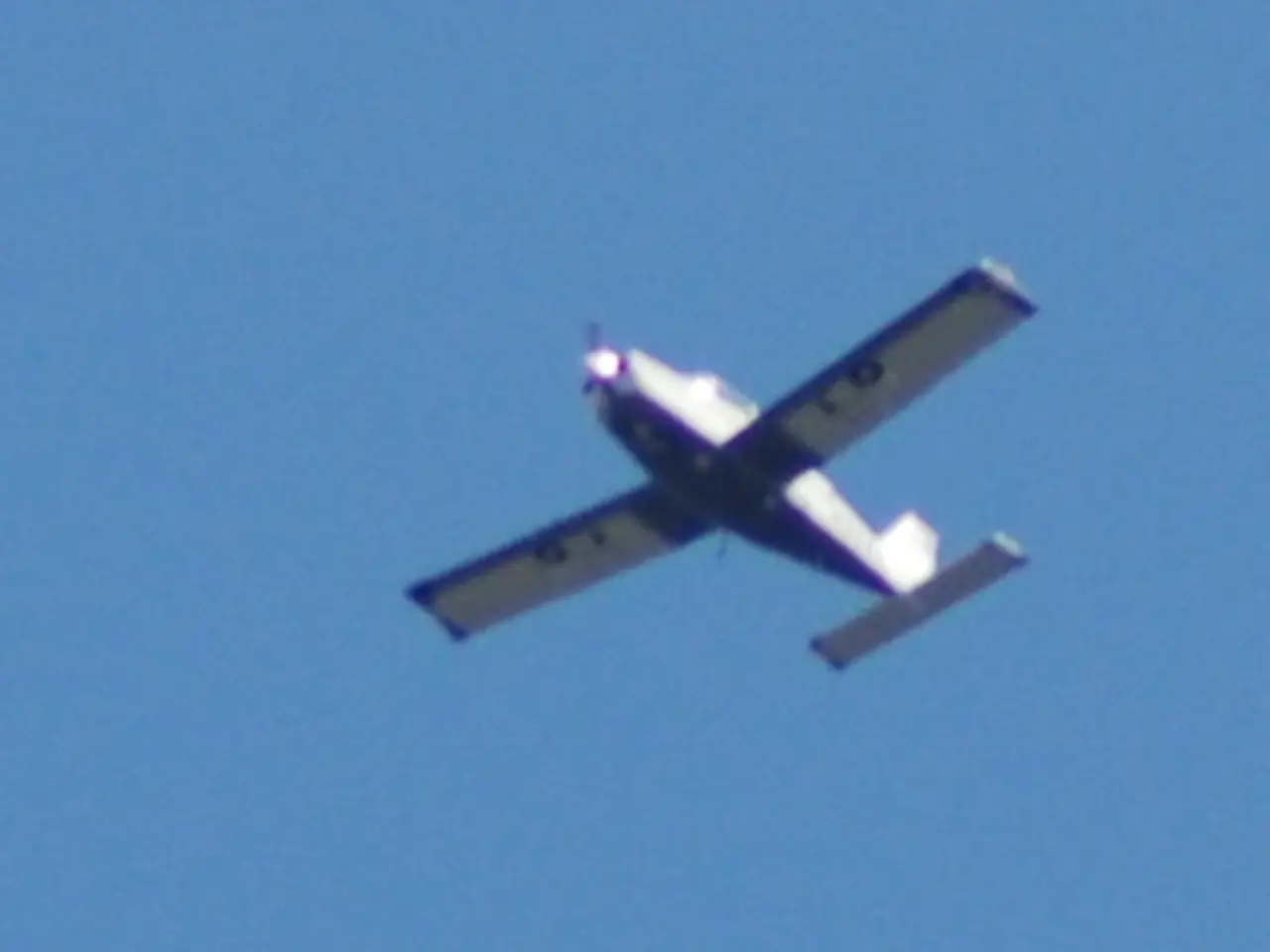Partnership between United Airlines and JetBlue obtains Trump administration approval to operate flights
The U.S. Department of Transportation (DOT) has given the green light for the Blue Sky partnership between United Airlines and JetBlue to take off. This comprehensive collaboration, approved in July 2025, integrates the loyalty programs, booking platforms, and operational resources of both airlines, aiming to offer enhanced benefits to customers [1][3][5].
Key details of the Blue Sky partnership include:
- Loyalty Integration: United’s MileagePlus members can earn and redeem miles on most JetBlue flights, while JetBlue’s TrueBlue members gain the same ability on United flights. Loyalty benefits such as priority boarding, free checked baggage, preferred/extra legroom seats, and same-day flight standby/switches apply across both airlines [1][3][5].
- Booking and Sales Platforms: Customers will be able to book flights from either airline on the other’s website and app via an interline agreement, simplifying multi-leg trips involving both carriers. United's non-flight ancillary sales (hotels, car rentals, cruises, travel insurance) will transition to JetBlue’s Paisly platform to enhance offerings and revenue [1][5].
- Slot Exchanges: United will acquire up to seven of JetBlue’s daily slots at JFK Airport Terminal 6 starting in 2027, broadening United’s presence there. Simultaneously, the airlines will exchange flight schedules at Newark Liberty International Airport, with JetBlue providing slots for up to eight United flights and vice versa to balance operations [1][3][5].
The DOT's antitrust review found no grounds to block the alliance, despite concerns from competitors like Spirit Airlines [1][3][4][5]. This clearance was crucial to allow the launch and phased rollout of Blue Sky starting in fall 2025.
The DOT’s approval enabled both airlines to synchronise loyalty programs and operational cooperation, thereby increasing customer benefits and driving substantial financial benefits. JetBlue anticipates the Blue Sky collaboration to contribute significantly to earnings before interest and taxes (EBIT), with a revised projection of $850 to $950 million in EBIT benefit by the end of 2027, up from previous estimates [2].
It's important to note that the Blue Sky partnership is not a merger of the airlines, United and JetBlue. This collaboration is designed to provide customers with more flexible travel options, loyalty program rewards across two major U.S. carriers, and expanded slot usage at major New York airports. The DOT's approval removed regulatory uncertainty and paved the way for the alliance's implementation and anticipated financial gains for both airlines [1][2][3][5].
Meanwhile, Transportation Secretary Sean Duffy discussed flight delays on 'Varney & Co.' [6], but no prior context was provided regarding the relationship between these discussions and the Blue Sky partnership.
References: [1] Reuters, "U.S. approves United, JetBlue partnership," 2025. [2] JetBlue Airways Corp., "Blue Sky collaboration to generate significant financial benefit," 2025. [3] United Airlines Holdings Inc., "Blue Sky partnership receives DOT approval," 2025. [4] Spirit Airlines, "Opposition to Blue Sky collaboration," 2025. [5] U.S. Department of Transportation, "Blue Sky partnership review," 2025. [6] Fox Business, "Transportation Secretary Sean Duffy discusses flight delays on 'Varney & Co.', " 2025.
- The DOT's approval of the Blue Sky partnership between United Airlines and JetBlue allows for the integration of their loyalty programs, enabling United’s MileagePlus members to earn and redeem miles on JetBlue flights, and vice versa.
- The appointment of Sean Duffy as Transportation Secretary may have implications for air travel, as he discussed flight delays on 'Varney & Co.', but no prior context was provided regarding his relation to the Blue Sky partnership.
- The Blue Sky partnership, despite concerns from competitors like Spirit Airlines, is expected to drive substantial financial benefits for both United Airlines and JetBlue, with JetBlue anticipating the collaboration to contribute significantly to earnings before interest and taxes (EBIT), with a revised projection of $850 to $950 million in EBIT benefit by the end of 2027.
- The alliance between United Airlines and JetBlue has broad implications for various sectors, including finance, industry, and even lifestyle, as it simplifies multi-leg trips involving both carriers, enhances offerings and revenue through the use of JetBlue’s Paisly platform, and provides customers with more flexible travel options.




